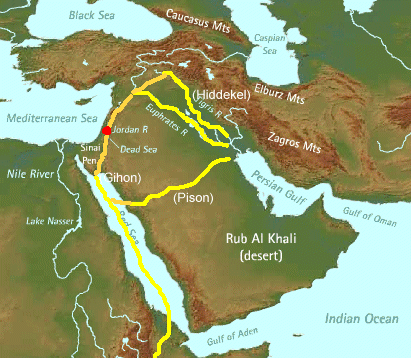King Coniah of Judah and the on-again, off-again signet ring
by
Damien F. Mackey
‘As surely as I live’, declares the Lord, ‘even if you, Coniah son of Jehoiakim king of Judah, were a signet ring on my right hand, I would still pull you off’.
Jeremiah 22:24
The name, “Coniah” is a truncated form of Jeconiah, who is otherwise known as Jehoiachin.
The prophet Jeremiah had cut off part of the name to abbreviate it to “Coniah”. For will not king Jehoiachin (as Haman) and his ten sons be cut off by being impaled in Susa? See my:
Haman un-masked
https://www.academia.edu/37584041/Haman_un-masked
When the deceitful Haman had devised his dastardly plan to exterminate the Jews, but was still in high favour with King Ahasuerus, we read (Esther 3:10): “So the king took his signet ring from his hand and gave it to Haman, the son of Hammedatha … the enemy of the Jews”.
But, later, when the Machiavellian machinations of that maniacal monster, Haman, had been exposed by Queen Esther and Mordecai, we read (8:1-2): “On that day King Ahasuerus gave Queen Esther the house of Haman, the enemy of the Jews. And Mordecai came before the king, for Esther had told how he was related to her. So the king took off his signet ring, which he had taken from Haman, and gave it to Mordecai; and Esther appointed Mordecai over the house of Haman”.
Coniah, a king of Judah, had no descendants of his own to continue on the throne of Judah.
The ‘signet ring’ would now pass to Zerubabbel.
The question is asked at: https://www.gotquestions.org/Zerubbabel-signet-ring.html
What does it mean that Zerubbabel was the LORD’s signet ring (Haggai 2:23)?
….
Answer: In Haggai 2:23 we read, “‘On that day,’ declares the LORD Almighty, ‘I will take you, my servant Zerubbabel son of Shealtiel,’ declares the LORD, ‘and I will make you like my signet ring, for I have chosen you.’” What did God mean when He said Zerubbabel was His signet ring?
Answer: In Haggai 2:23 we read, “‘On that day,’ declares the LORD Almighty, ‘I will take you, my servant Zerubbabel son of Shealtiel,’ declares the LORD, ‘and I will make you like my signet ring, for I have chosen you.’” What did God mean when He said Zerubbabel was His signet ring?
Ancient kings used signet rings to designate authority, honor, or ownership. A signet contained an emblem unique to the king. Official documents were sealed with a dollop of soft wax impressed with the king’s signet, usually kept on a ring on his finger.
Such a seal certified the document as genuine, much like a notary public’s stamp today.
In 1 Kings 21:8, the evil Queen Jezebel took King Ahab’s signet ring and “wrote letters in Ahab’s name and sealed them with his seal.” The ring’s stamp gave her letters the king’s authority. In Daniel 6:17, a signet ring was used to seal a stone covering a lions’ den: “A stone was brought and laid on the mouth of the den, and the king sealed it with his own signet and with the signet of his lords, that nothing might be changed concerning Daniel.” A royal signet ring is also featured in Genesis 41:41-43 and Esther 8:8.
It is important to understand who Zerubbabel is. He is the governor of the rebuilt Jerusalem and is himself of royal blood, being a descendant of David and the grandson of Judah’s King Jehoiachin. Years earlier, Jehoiachin had lost his throne when he was deported to Babylon; in fact, God pictured Jehoiachin as a signet ring being removed from God’s finger (Jeremiah 22:24). Now, God calls Zerubbabel the “signet ring,” but this time it won’t be removed.
In Haggai’s prophecy, God is giving Zerubbabel encouragement and hope. The governor is “chosen” for a unique and noble purpose. As God’s signet ring, Zerubbabel is given a place of honor and authority. God is reinstating the Davidic line and renewing His covenant with David. Judah still has a future as they look forward to the coming Son of David, the Messiah, who would one day “overturn royal thrones and shatter the power of the foreign kingdoms” (Haggai 2:22).
Zerubbabel is also called “my servant.” This title was often a Messianic reference in the Old Testament (2 Samuel 3:18; 1 Kings 11:34; Isaiah 42:1-9; 49:1-13; 50:4-11; 52:13-53:12; Ezekiel 34:23-24; 37:24-25). The triad of servant, son, and signet ring creates a special combination of encouragement given to few in Scripture. Zerubbabel was an important leader involved in the reconstruction of the Jewish temple. As God’s “signet ring,” Zerubbabel becomes a picture of the future Messiah, Jesus Christ, who will establish His people in the Promised Land, construct an even grander temple (Zechariah 6:12-13), and lead the righteous in never-ending worship.

Comments